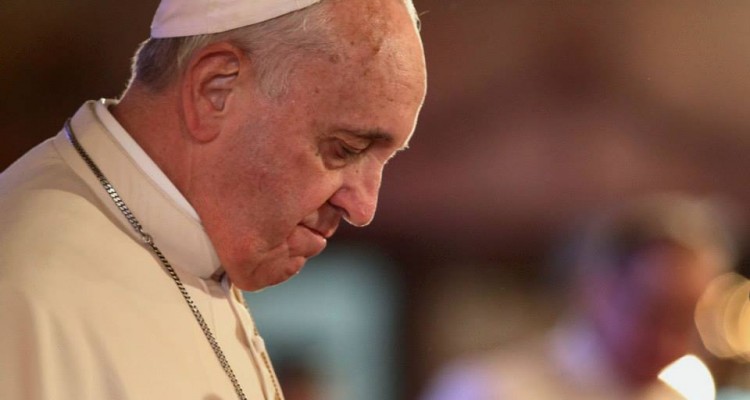When addressing the assembled bishops of the United States during his historic first visit to our country, Pope Francis expressed that life and the family were the reasons for his visit. However, rather than focusing on the positive reasons for his visit, there was controversy surrounding those who would be in attendance for the pope’s White House speech. President Obama’s inclusion of LGBT and pro-health care guests should not be looked upon as a tactless and calculated ploy to make the pope uncomfortable, as some conservatives have concluded. Instead, we should all recognize the positive impact that the company of these guests can have on promoting Pope Francis’ message of the importance of being less judgmental and more merciful.
It is easy to assume that some guests were invited in order to “fill a quota.” In various aspects of life, whether it is in advertising, the film industry or the classroom, we try to balance and control the number of people from different groups who are included so that there are no biases. I believe a more accurate assumption should be that the guest list reflected the overarching message of Francis’ papacy — that of inclusion and embracing all humankind. Despite the fact that such thoughts should be implicit and not forced, our society is not there yet. If these guests were invited to the White House to meet the pope to serve the greater purpose of making sure that each “group” is represented, it should be looked upon instead as living up to the example that Francis has shown us. The inclusion of these guests serves as an additional benefit to those who identify similarly to them, depicting Francis’ message of reaching out to those who have been marginalized.
According to Patheos, a non-denominational, non-partisan online media company, theologian Thomas Williams called the White House guest list “a stunning show of political indecorum.” I do not agree with Williams’ assessment of those who were permitted to be in attendance. By referencing these invited guests in such a negative way, Williams diminishes their value as individuals of already marginalized communities, a stark contrast to the pope’s message of pastoral care and giving voice to those who cannot be heard. Williams, as well as anyone else, should not have the power to choose who can be in the pope’s presence based on his personal beliefs. If these guests are as devoted to the pope and the Church as any other practicing Catholic, they should not be denied the right to welcome him into our country’s capital based on how they identify themselves or what causes they support.
One of the guests included retired Episcopal bishop Gene Robinson. Robinson became the first openly gay bishop in 2003. Additionally, according to The Deacon’s Bench, a blog on Patheos’ website, he was “subsequently the first to divorce his gay partner in 2014, after having previously separated from his wife of 14 years.” Given that he was and continues to be a devoted Catholic and former member of the clergy, I do not see why he should be ostracized for his sexual orientation. Despite whom he loved and his decision to divorce (an act that is in opposition to the Catholic Church’s values), these should not be determinants in whether or not he should be included in the audience greeting the pope. What struck me the most was the impact that Robinson has had on both the religious and LGBT communities. He was a key speaker at the 2009 Greenbelt Festival, a festival of arts, faith and justice that has been held annually in England since 1974. Aside from discussing how sexuality and spirituality can coexist with one another, he also influenced gay and lesbian festival attendees as he led them in prayer on the second night of the event. I consider Robinson’s bravery to be the only characteristic that he should be noted for and, even if the Church does not agree with his sexual preferences, his devoutness to his religion, himself and others should be valued.
Another guest who was invited to greet Pope Francis was Mateo Williamson. Williamson was at one point the co-chairman of the Transgender Caucus for Dignity USA. Williamson, although assigned female at birth, identifies today as a gay man. I think that given the current progress in our country of how transgender men and women are treated, Williamson’s attendance at an event that honors a prominent religious figure will be, although not a solution, a further step in the right direction to promoting Francis’ message of reminding us that Christianity is about being followers of Jesus Christ.
Although Pope Francis has made his position clear on his support of traditional values, he has also expressed that we should love everyone. He has often criticized those who forget the basic principle that Christianity was founded upon — love. He conducted himself with predictable grace; therefore, I do not believe that it is anyone’s place to assume he would exclude any of the faithful from the honor of being in his audience.


Leave a Reply